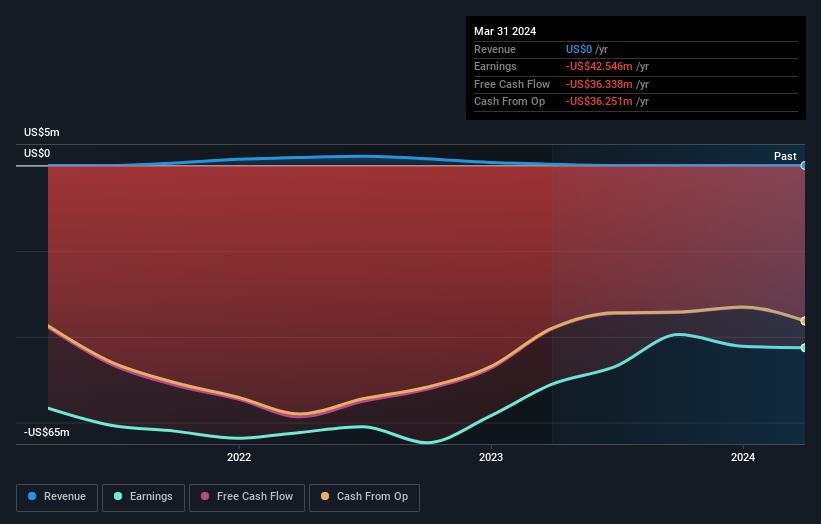A US$60m drop in the market cap of Pulse Biosciences, Inc. (NASDAQ:PLSE) is not what insiders like to see after purchasing shares recently
Key Insights
Insiders appear to have a vested interest in Pulse Biosciences' growth, as seen by their sizeable ownership
Robert Duggan owns 68% of the company
To get a sense of who is truly in control of Pulse Biosciences, Inc. (NASDAQ:PLSE), it is important to understand the ownership structure of the business. And the group that holds the biggest piece of the pie are individual insiders with 70% ownership. In other words, the group stands to gain the most (or lose the most) from their investment into the company.
Notably, insiders have bought shares recently. So the news of stock price falling by 8.9% is not something they might have been expecting soon after purchasing shares.
In the chart below, we zoom in on the different ownership groups of Pulse Biosciences.
View our latest analysis for Pulse Biosciences
What Does The Institutional Ownership Tell Us About Pulse Biosciences?
Many institutions measure their performance against an index that approximates the local market. So they usually pay more attention to companies that are included in major indices.
We can see that Pulse Biosciences does have institutional investors; and they hold a good portion of the company's stock. This suggests some credibility amongst professional investors. But we can't rely on that fact alone since institutions make bad investments sometimes, just like everyone does. If multiple institutions change their view on a stock at the same time, you could see the share price drop fast. It's therefore worth looking at Pulse Biosciences' earnings history below. Of course, the future is what really matters.
Hedge funds don't have many shares in Pulse Biosciences. From our data, we infer that the largest shareholder is Robert Duggan (who also holds the title of Top Key Executive) with 68% of shares outstanding. Its usually considered a good sign when insiders own a significant number of shares in the company, and in this case, we're glad to see a company insider play the role of a key stakeholder. Meanwhile, the second and third largest shareholders, hold 1.9% and 1.5%, of the shares outstanding, respectively.
Researching institutional ownership is a good way to gauge and filter a stock's expected performance. The same can be achieved by studying analyst sentiments. Our information suggests that there isn't any analyst coverage of the stock, so it is probably little known.
Insider Ownership Of Pulse Biosciences
The definition of company insiders can be subjective and does vary between jurisdictions. Our data reflects individual insiders, capturing board members at the very least. The company management answer to the board and the latter should represent the interests of shareholders. Notably, sometimes top-level managers are on the board themselves.
I generally consider insider ownership to be a good thing. However, on some occasions it makes it more difficult for other shareholders to hold the board accountable for decisions.
Our information suggests that insiders own more than half of Pulse Biosciences, Inc.. This gives them effective control of the company. So they have a US$439m stake in this US$630m business. Most would be pleased to see the board is investing alongside them. You may wish todiscover (for free) if they have been buying or selling.
General Public Ownership
The general public-- including retail investors -- own 21% stake in the company, and hence can't easily be ignored. This size of ownership, while considerable, may not be enough to change company policy if the decision is not in sync with other large shareholders.
Next Steps:
While it is well worth considering the different groups that own a company, there are other factors that are even more important. Like risks, for instance. Every company has them, and we've spotted 5 warning signs for Pulse Biosciences (of which 3 make us uncomfortable!) you should know about.
If you would prefer check out another company -- one with potentially superior financials -- then do not miss this free list of interesting companies, backed by strong financial data.
NB: Figures in this article are calculated using data from the last twelve months, which refer to the 12-month period ending on the last date of the month the financial statement is dated. This may not be consistent with full year annual report figures.
Have feedback on this article? Concerned about the content? Get in touch with us directly. Alternatively, email editorial-team (at) simplywallst.com.
This article by Simply Wall St is general in nature. We provide commentary based on historical data and analyst forecasts only using an unbiased methodology and our articles are not intended to be financial advice. It does not constitute a recommendation to buy or sell any stock, and does not take account of your objectives, or your financial situation. We aim to bring you long-term focused analysis driven by fundamental data. Note that our analysis may not factor in the latest price-sensitive company announcements or qualitative material. Simply Wall St has no position in any stocks mentioned.
Have feedback on this article? Concerned about the content? Get in touch with us directly. Alternatively, email editorial-team@simplywallst.com

 Yahoo Finance
Yahoo Finance 

